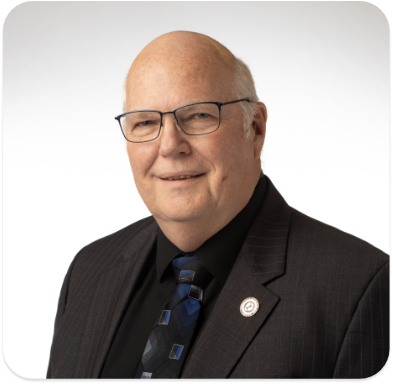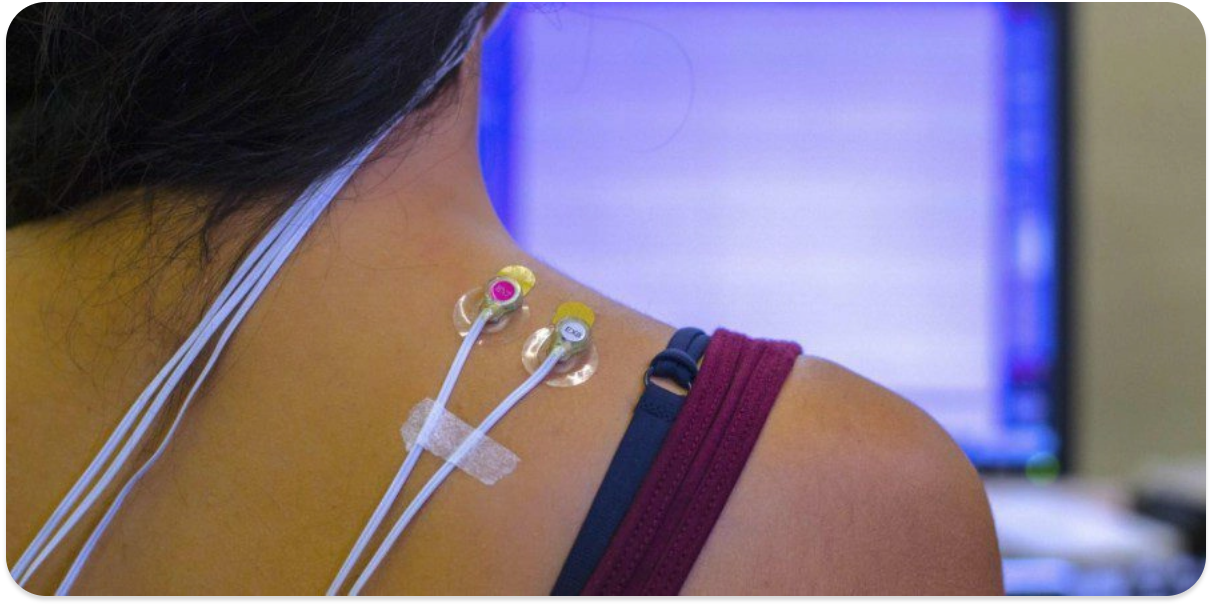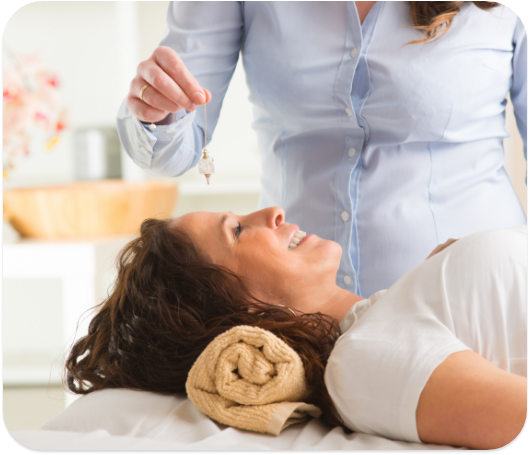Discovering Wellness Through Hypnosis
Hypnosis refers to an induced state of deep relaxation and focused attention in which participants become more likely to respond to suggestion. Clinical hypnosis applies psychological intervention techniques to this induced state of mind to guide clients toward positive change.
The Clinical and Applied Hypnosis Certificate program will help you build the skill set necessary to address common medical and behavioral disorders using the powerful influence of hypnosis. Ethical and professional practice is vital in this field, and our program spends considerable time on hypnosis-specific ethics, including informed consent, confidentiality, and client autonomy. You will also develop advanced proficiency in the latest clinical hypnosis techniques, like trance induction protocols, trance deepening techniques, posthypnotic suggestion, and techniques to re-alert your clients and close the trance phase.
In addition, you will also review current scientific approaches to explaining hypnotic phenomena, learn about the measurement and significance of hypnotic susceptibility, and further study the widely used and most effective approaches for utilizing hypnosis in psychotherapy and personal transformation.
The hypnotherapy certificate program meets the requirements set by the Standards of Training published by the American Society of Clinical Hypnosis (ASCH) and the Society for Clinical and Experimental Hypnosis (SCEH).
Clinical and Applied Hypnosis Certificate Job Outcomes
Clinical hypnosis can enhance any clinical practice but may be useful in many other occupations and in interpersonal relationships. Only licensed clinicians should use these skills in clinical settings; however, these same skills may be used for coaching and in optimal performance settings with a non-clinical population. Scope of practice will be discussed extensively during these courses to ensure the ethical use of this modality.
Other Certificate Programs
Saybrook’s certificate programs can enhance and broaden your professional expertise, open doors to new opportunities, and increase your competitiveness in the job market. Explore our certificate programs today to find the one that’s right for you:
Program Components
Admissions Requirements
This hybrid online hypnosis certificate program is open to all current Saybrook students. Other interested participants are also welcome to enroll and must have completed a master’s degree program from a regionally accredited university with a GPA of 3.0 or above.
Applicants for the Clinical and Applied Hypnosis Certificate program must submit the following:
- Official transcripts from undergraduate and graduate universities
- A personal statement of up to 500 words explaining your professional interest in pursuing this certificate
- Professional resume or CV
Invest in Your Future
Saybrook University remains committed to keeping higher education affordable and accessible. Our Financial Aid Department is ready to offer guidance and support in determining suitable financial assistance tailored to your needs, including potential scholarship opportunities, grants, and more.
Cost
Saybrook wants you to have the information you need to make an informed decision about your academic and career aspirations. Our cost calculator provides an estimated cost of attending Saybrook to earn your Clinical and Applied Hypnosis Certificate.
Sample Courses
Basic Training and Education in Hypnosis
Designed to follow the current Standards of Training in Clinical Hypnosis by the American Society of Clinical Hypnosis and the Society for Clinical and Experimental Hypnosis, this introductory course will equip you with a basic skill set to conduct simple hypnotic interventions, along with knowledge about hypnotic concepts and approaches, and a familiarity with research-based applications of hypnosis to common medical and behavioral disorders.
Intermediate Training and Education in Hypnosis
Building on the knowledge from the basic training course, this course helps you develop a sophisticated ability to learn and assess new applications of hypnosis. You will learn specific approaches and techniques for a number of advanced application areas, including pain management, anxiety treatment, habit change protocols, weight management, and ego strengthening.
Catalog
Please refer to our academic catalog for more information on the Clinical and Applied Hypnosis Certificate program.
University Learning Experience
Students in our Clinical and Applied Hypnosis Certificate program are required to attend University Learning Experiences during the basic and intermediate hypnosis courses. The University Learning Experience may be held virtually or in-person depending on the semester enrolled. Note, there is no University Learning Experience associated with the advanced hypnosis course.

Applied Psychophysiology Faculty
Saybrook’s Applied Psychophysiology faculty are practitioner-scholars dedicated to advancing their field through continued practice and comprehensive instruction. Meet some of our faculty members below.

- President, Michigan Society for Clinical Hypnosis
- Past President, Society for Psychological Hypnosis
- Past President, American Society for Clinical Hypnosis
- Past President, Society for Clinical and Experimental Hypnosis
UNBOUND: Psychophysiology
Bridging the gap between psychological and medical science, you will explore the close interconnectedness between the brain and body as part of our psychophysiology degree programs.

Ready to Take the Next Step?
Submit an inquiry and one of our admissions specialists will connect with you to answer your questions and guide you through next steps.
























